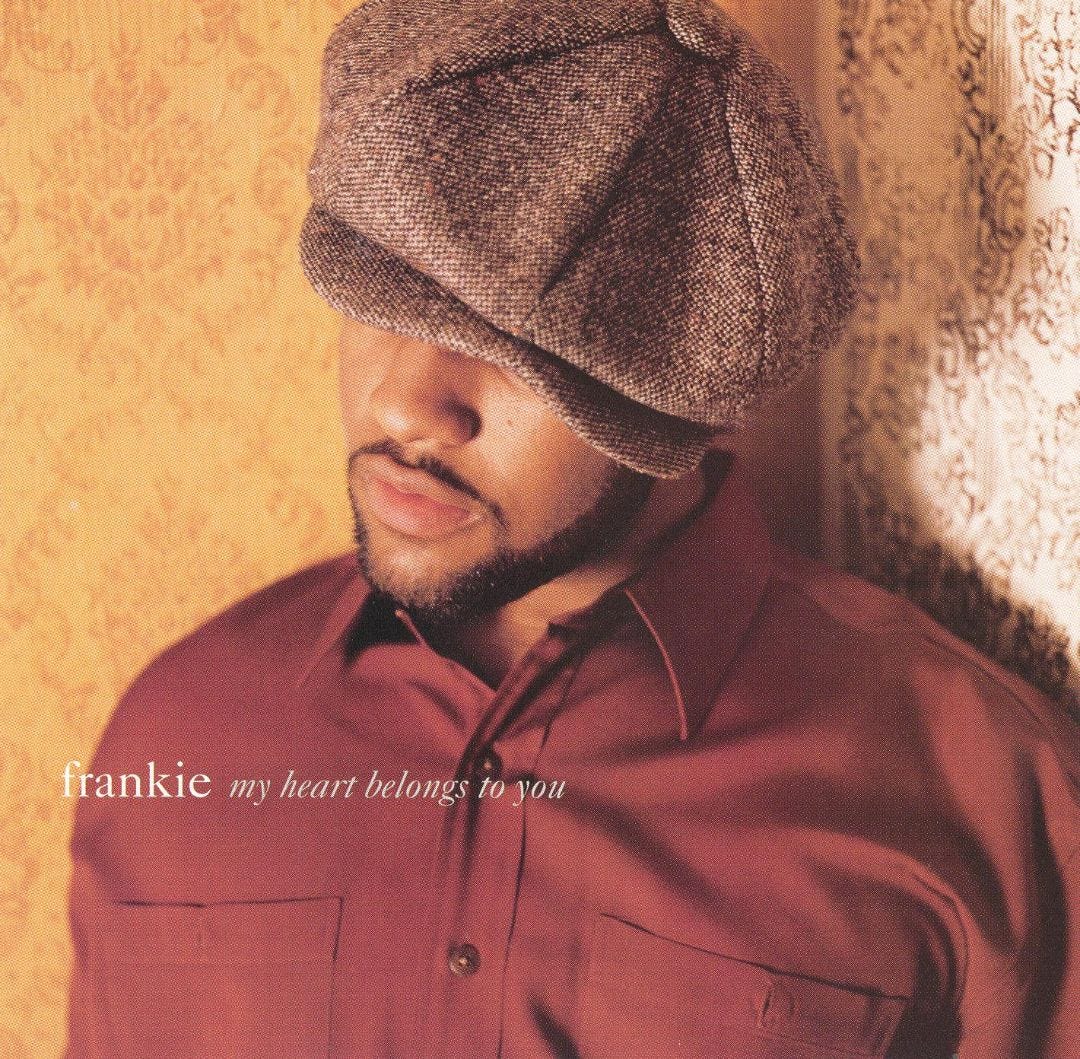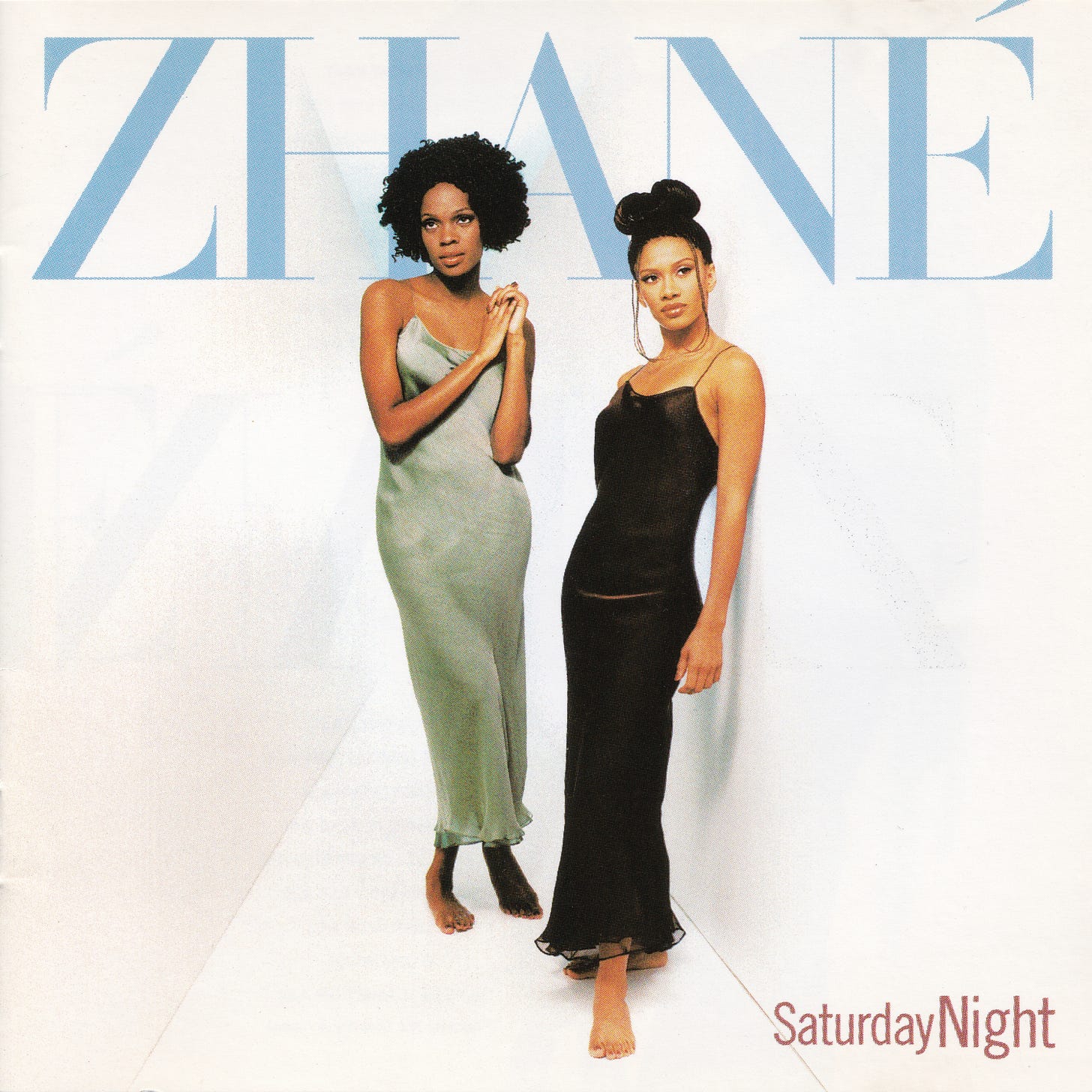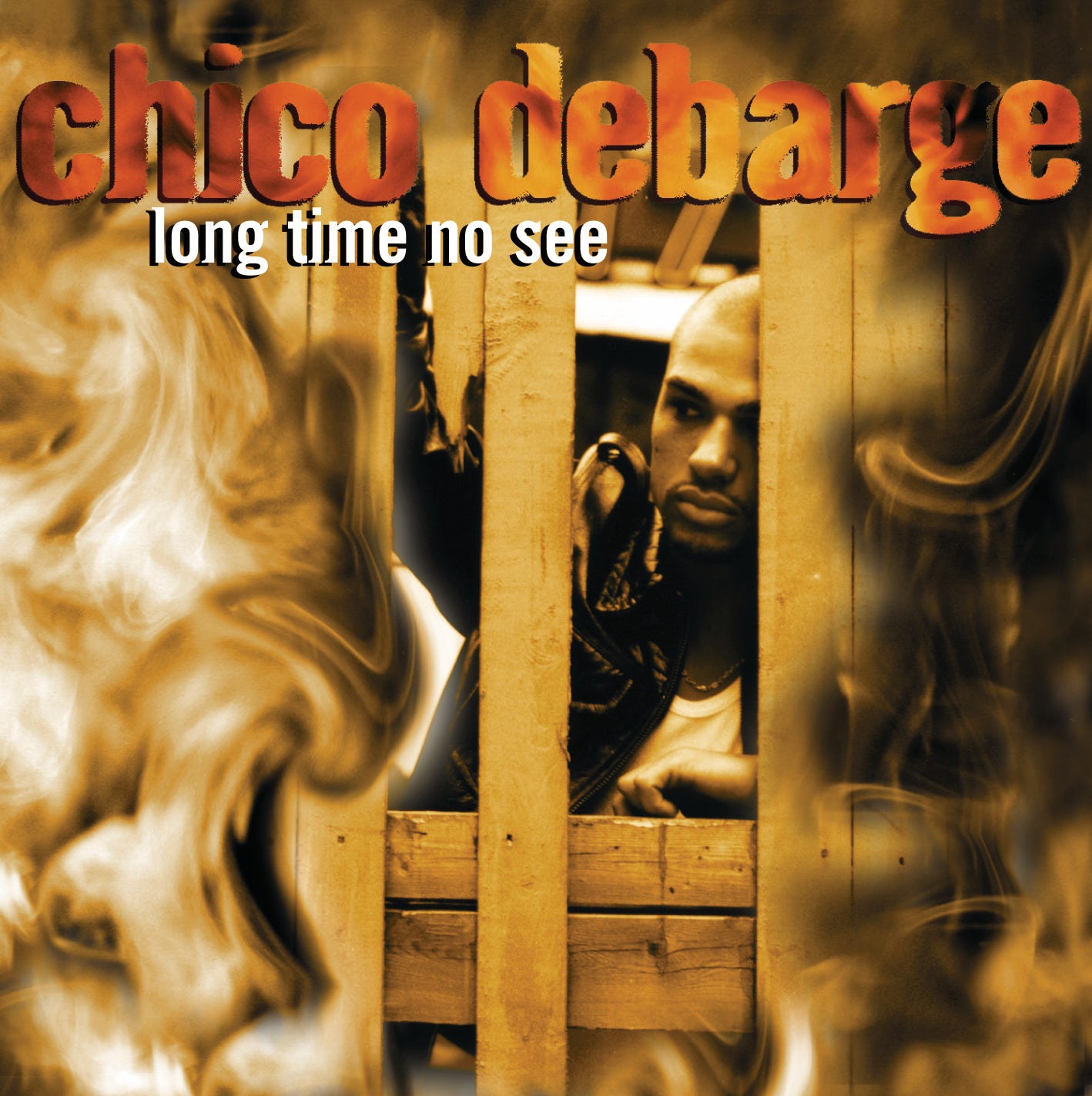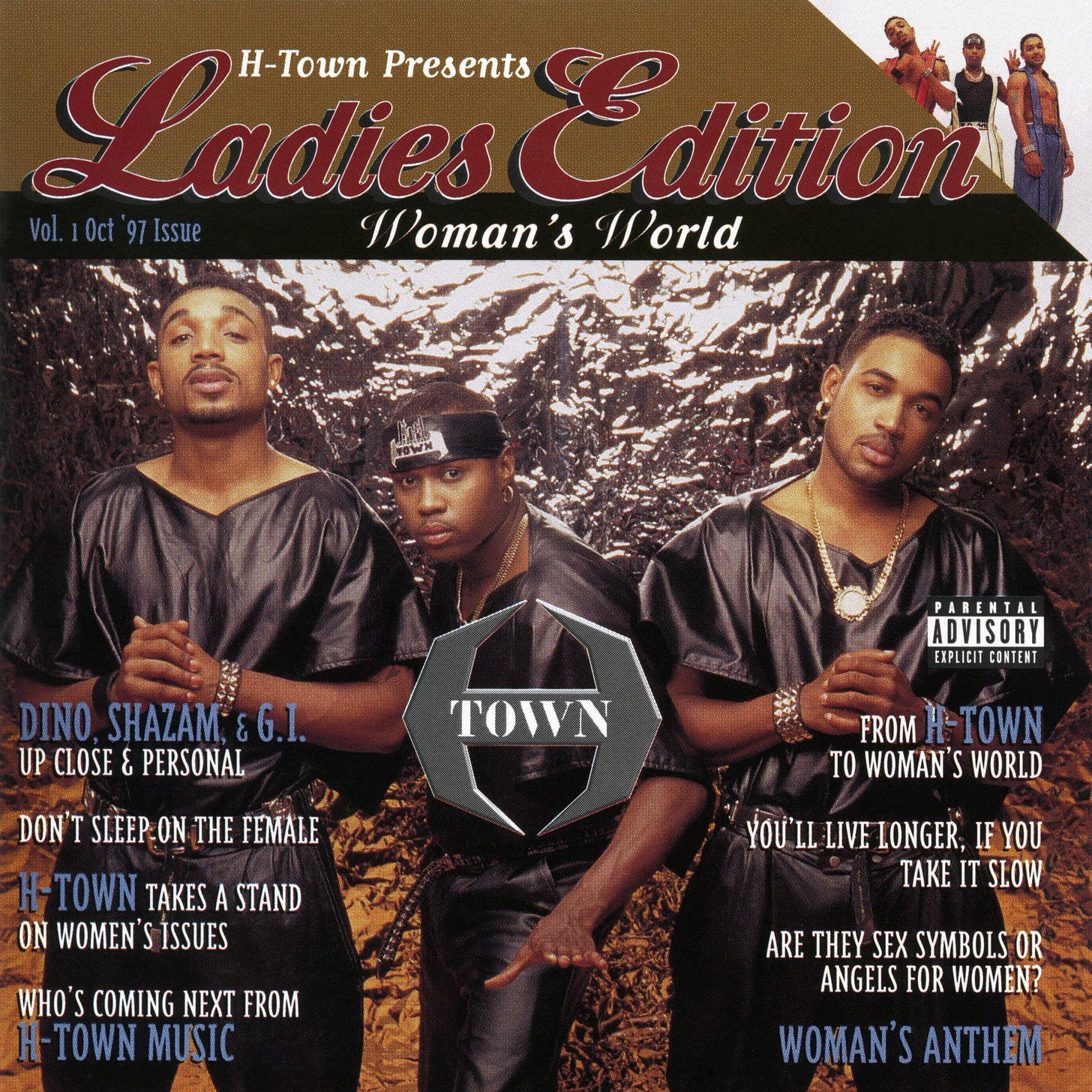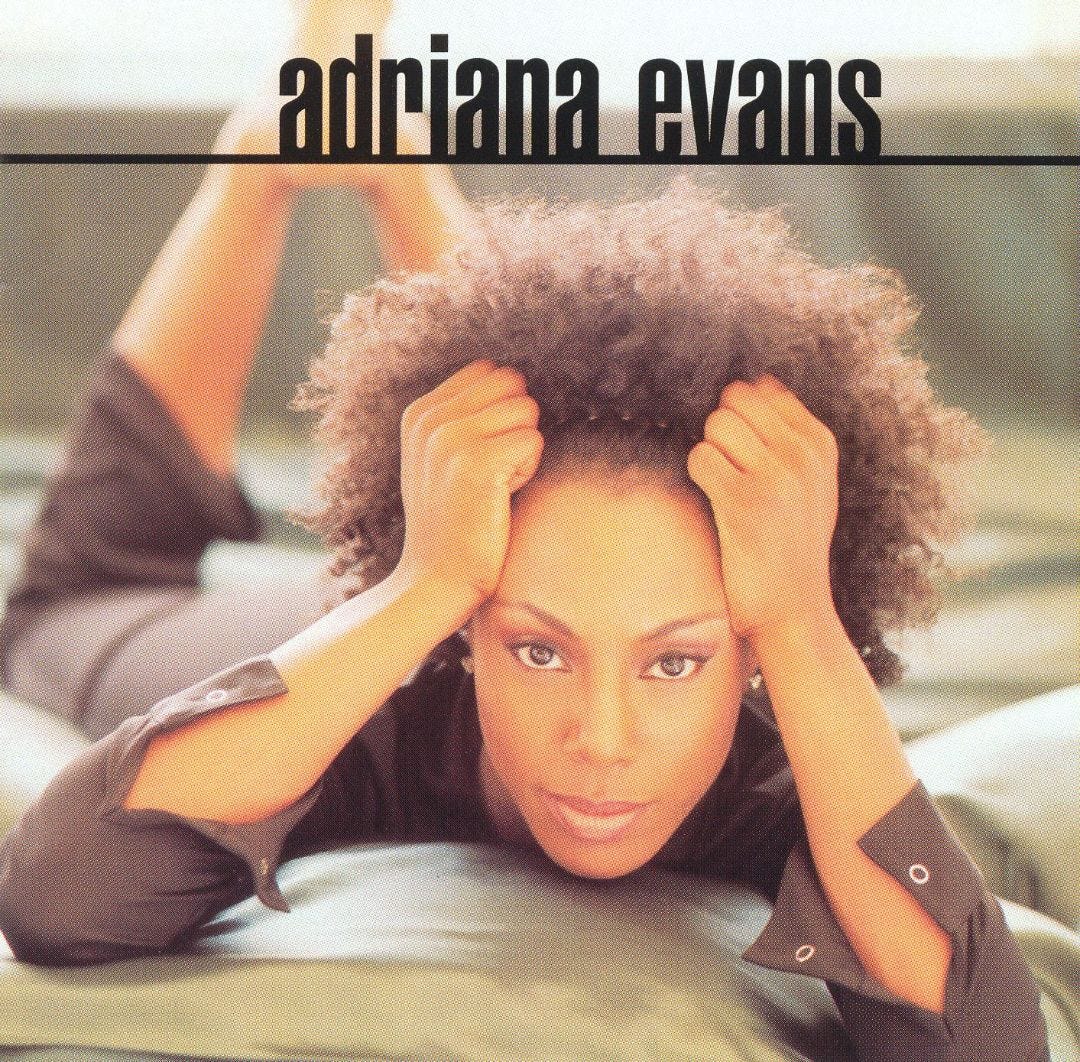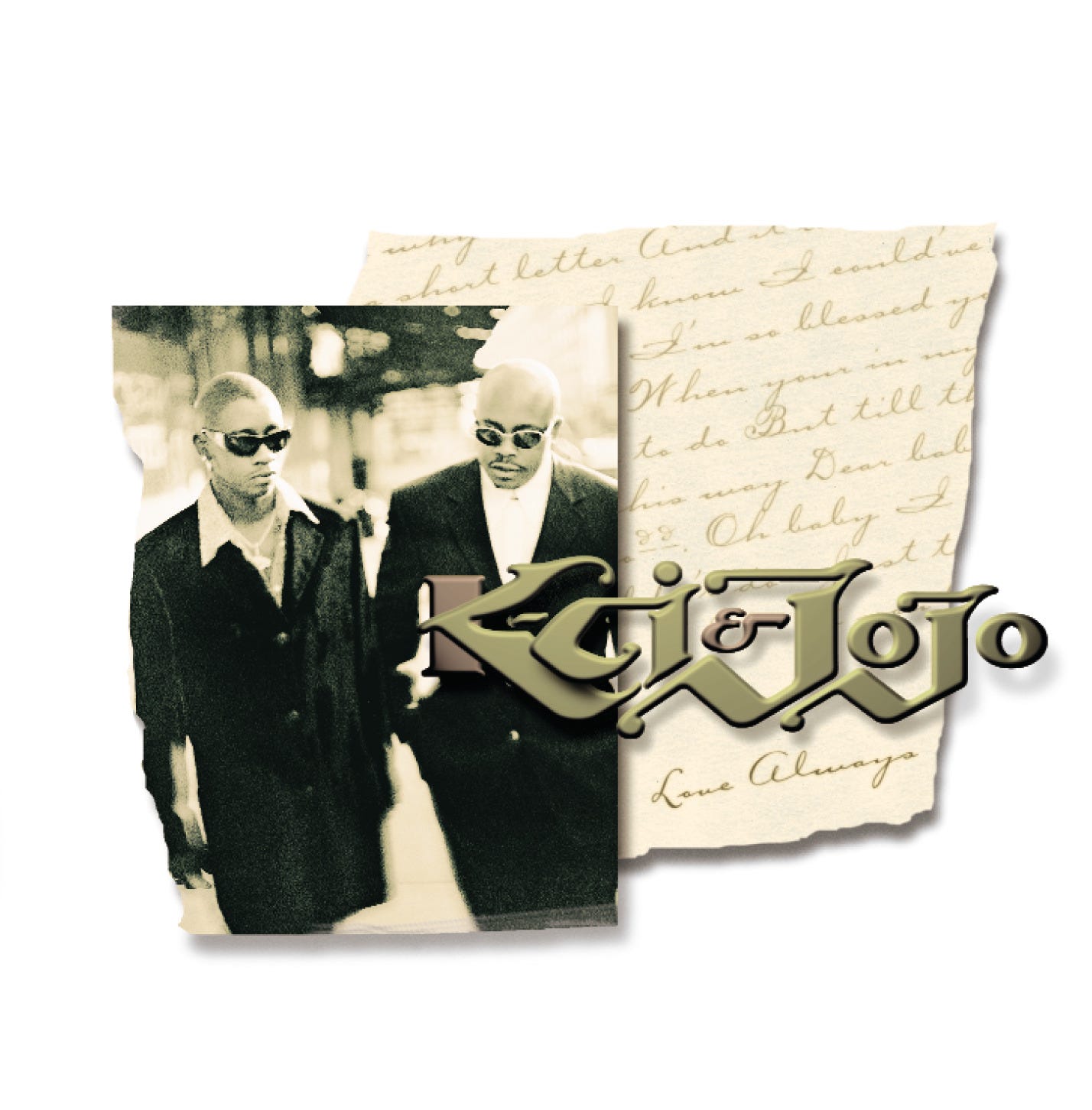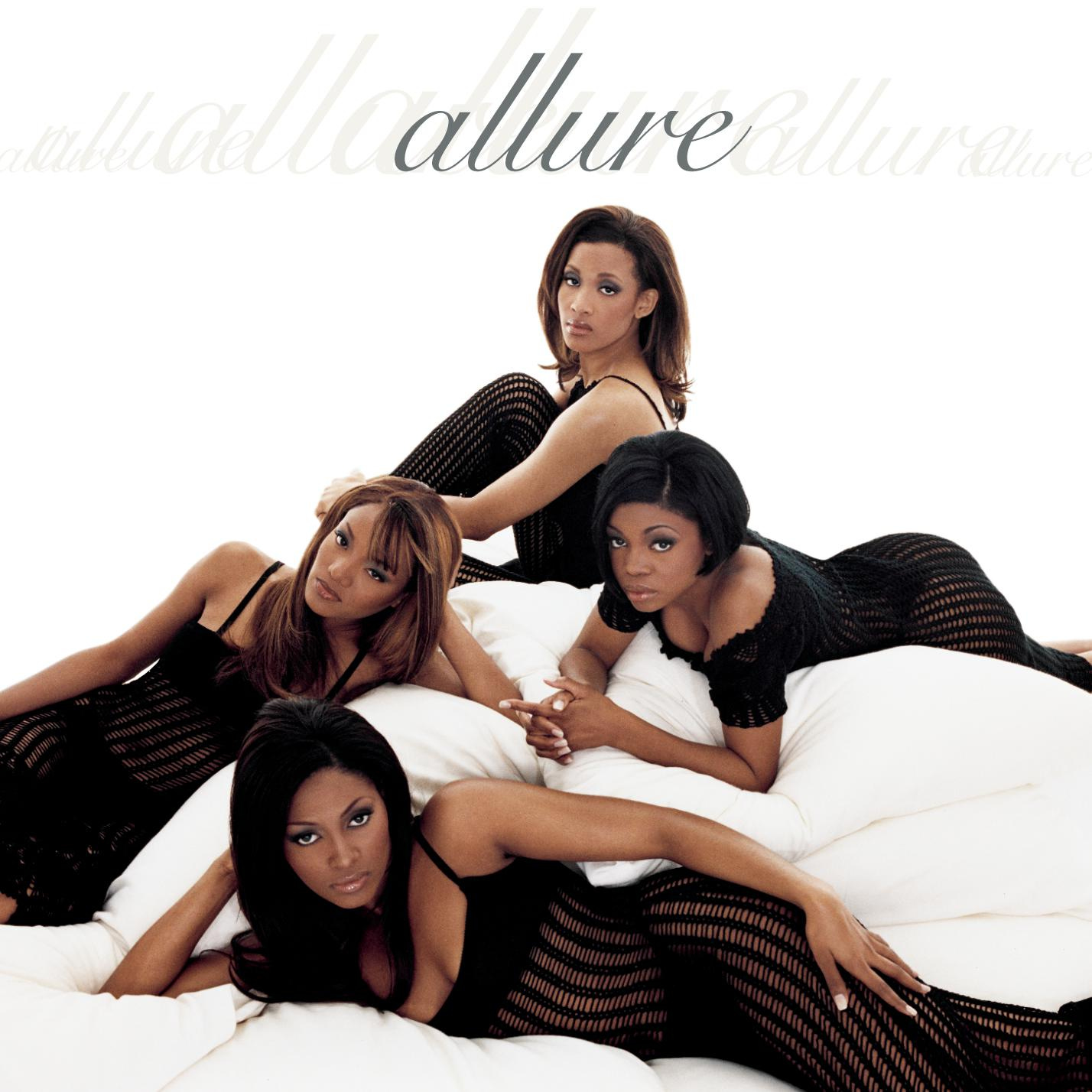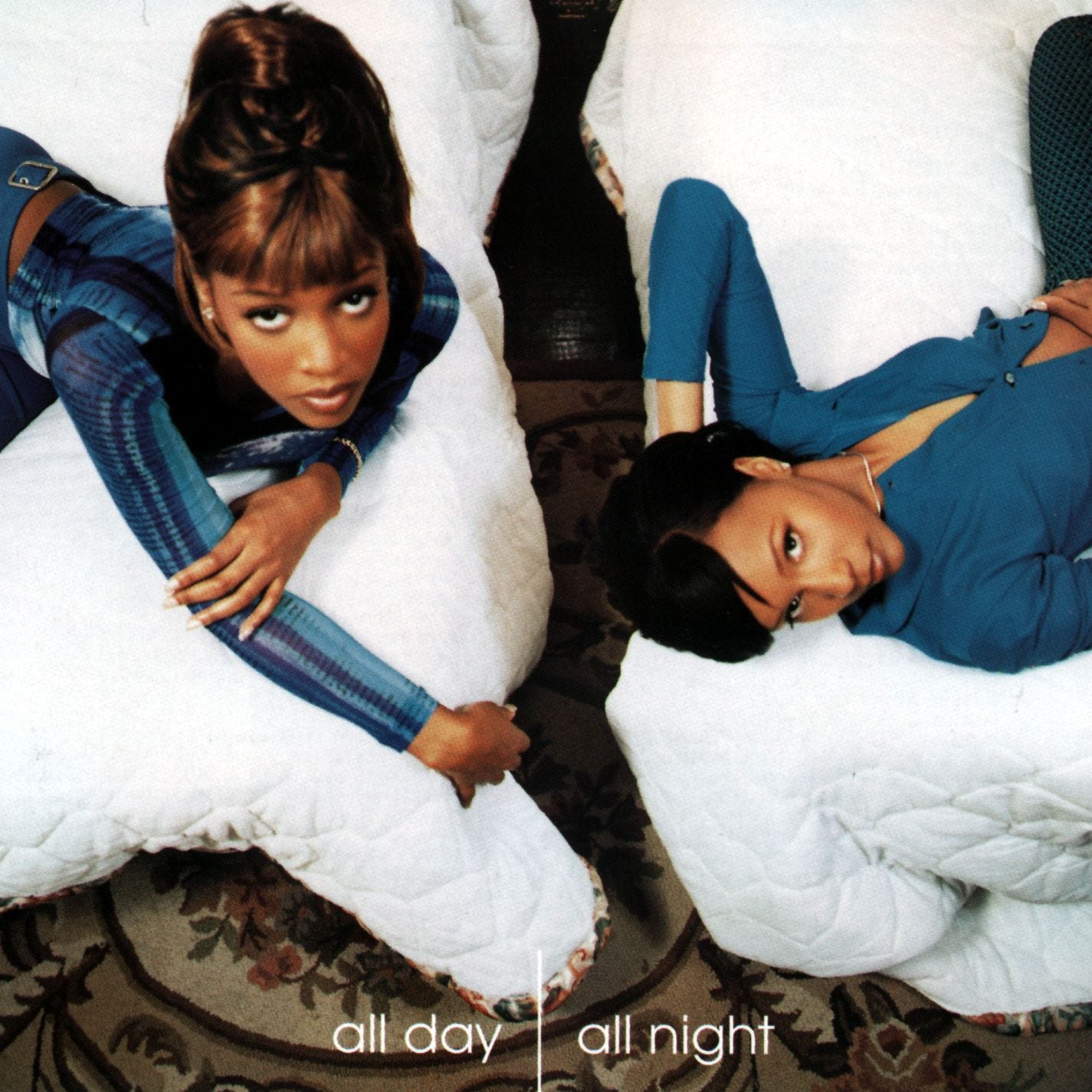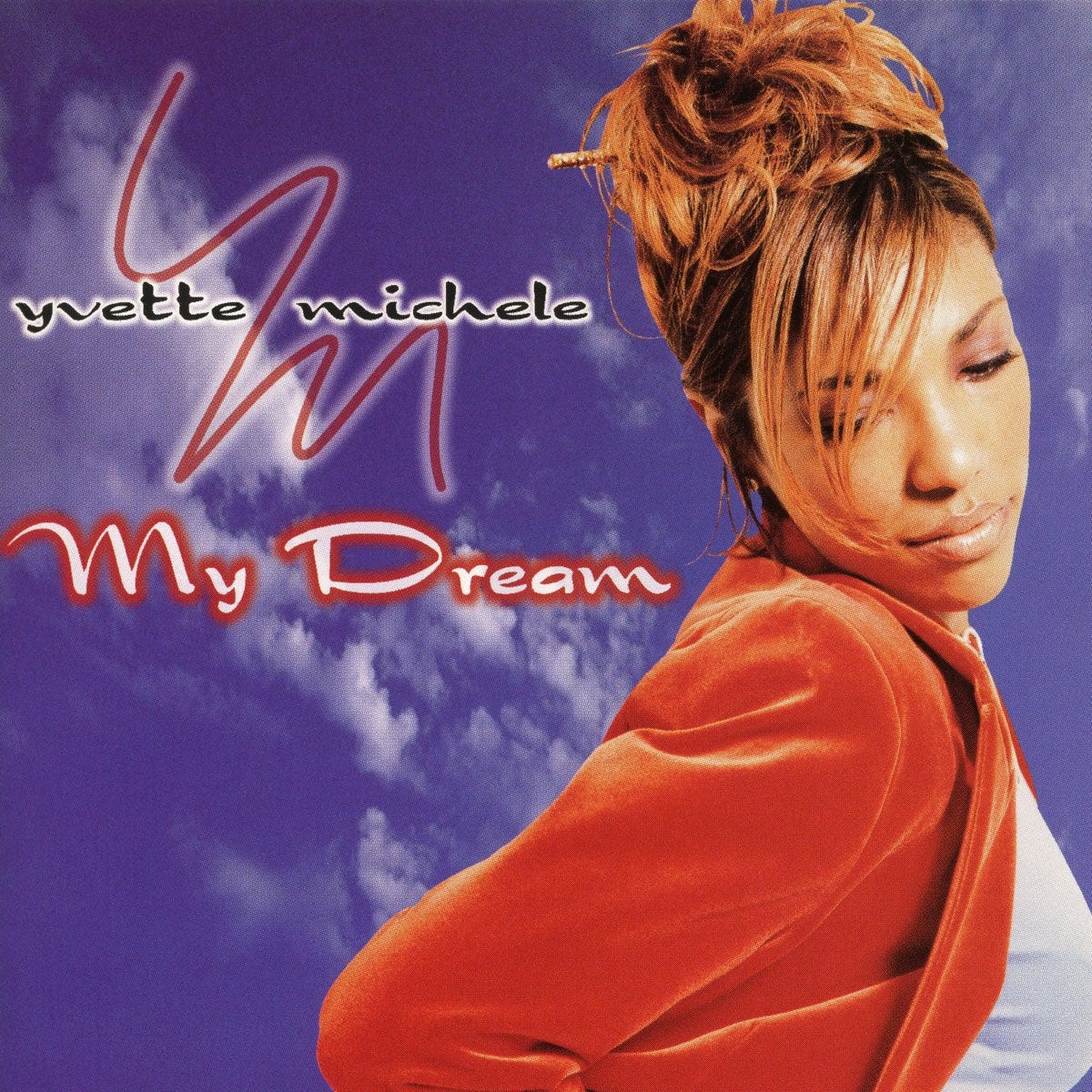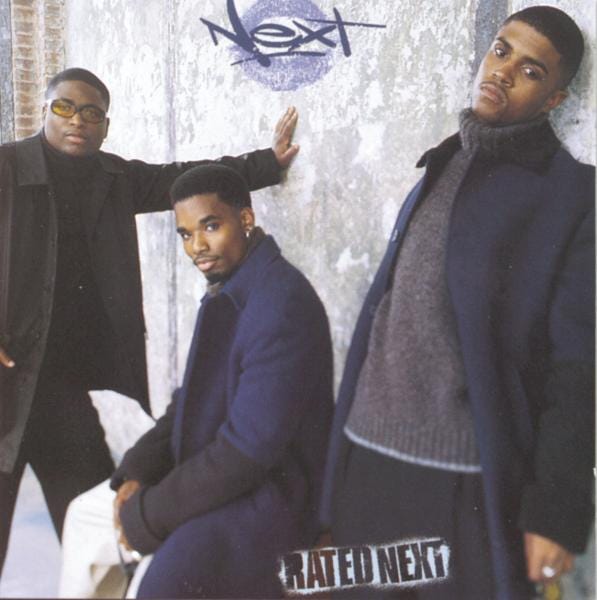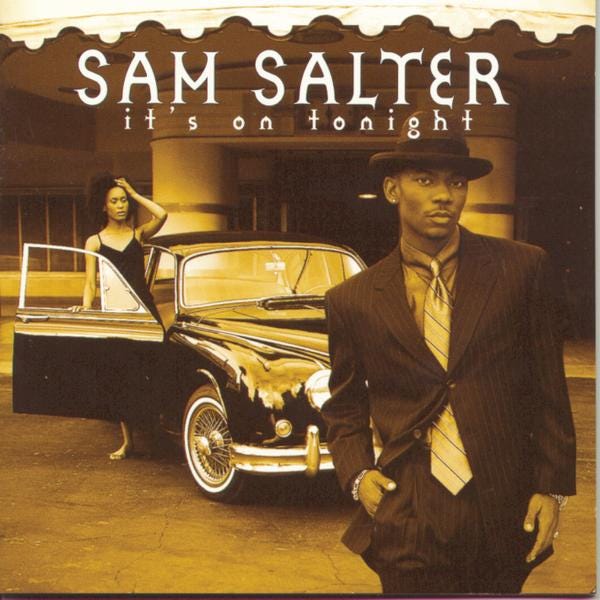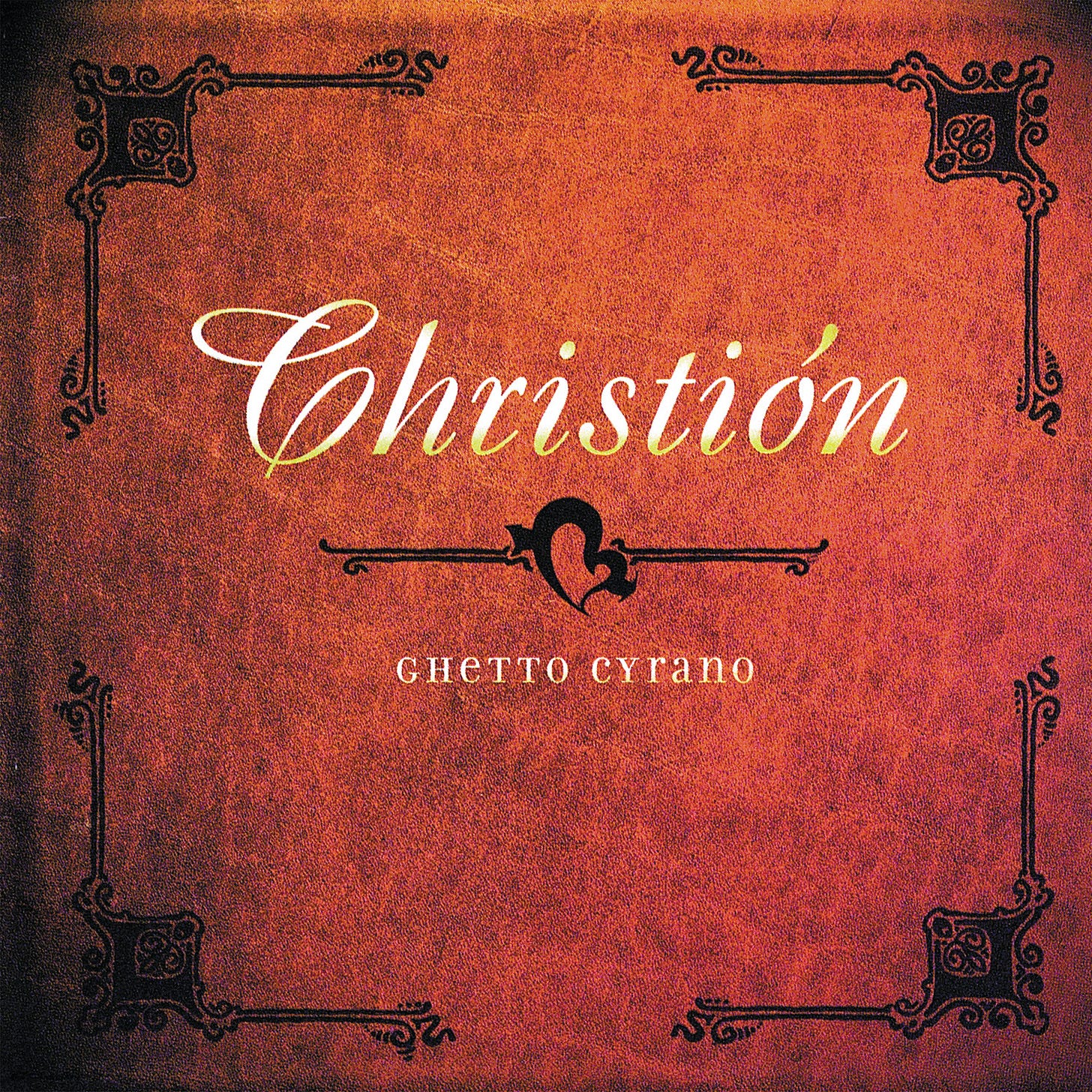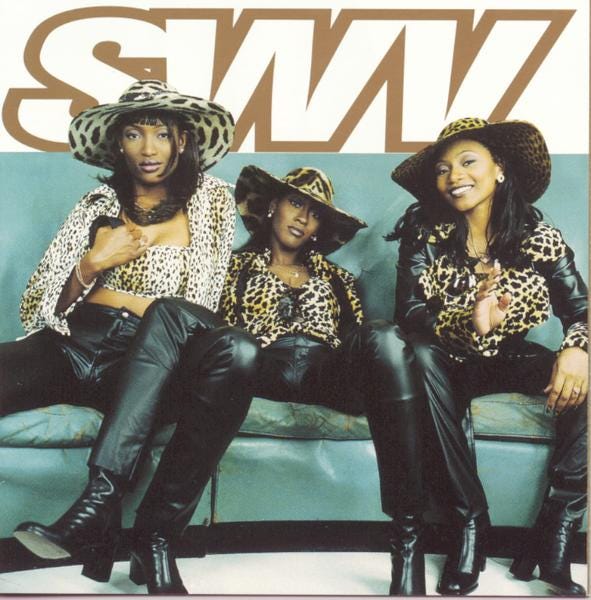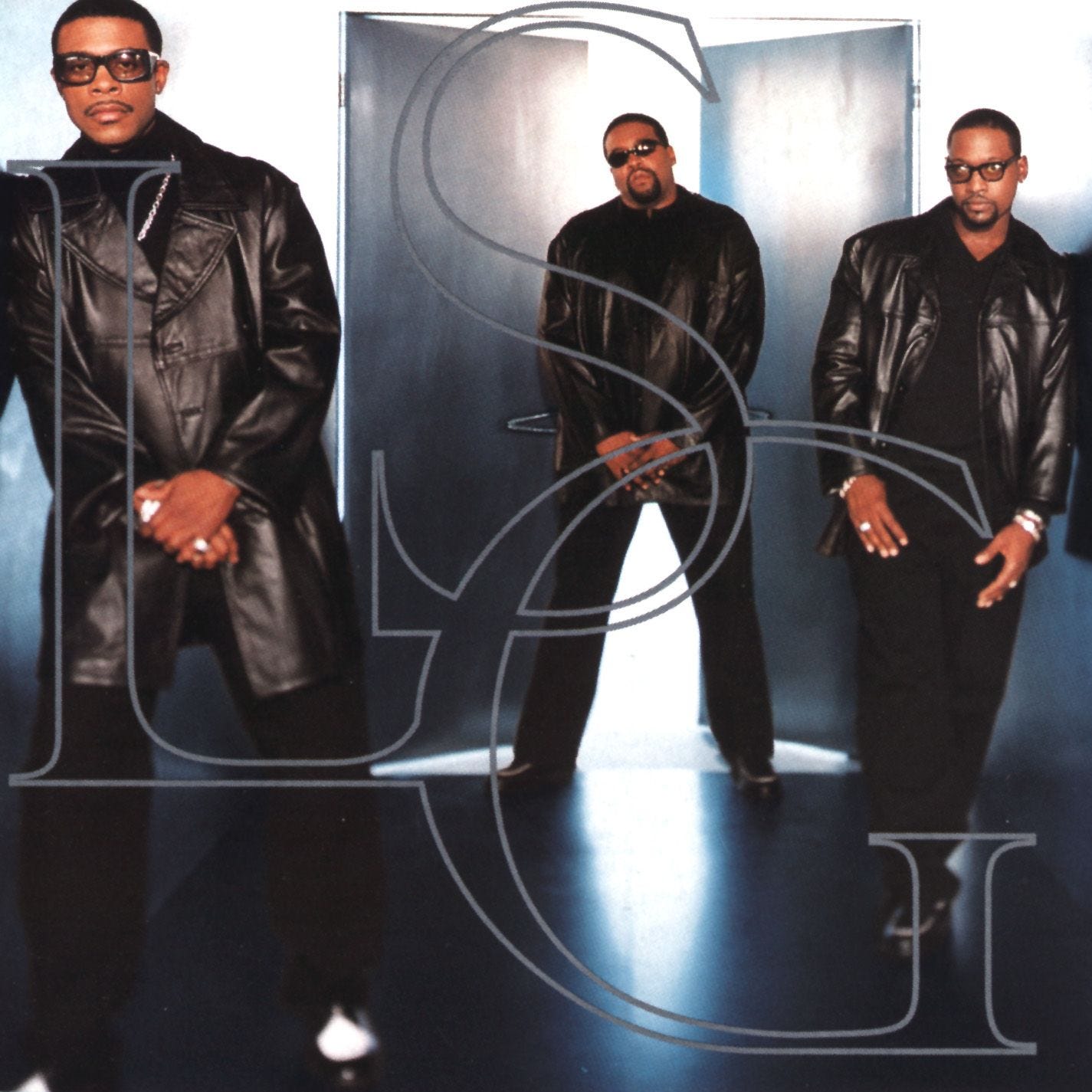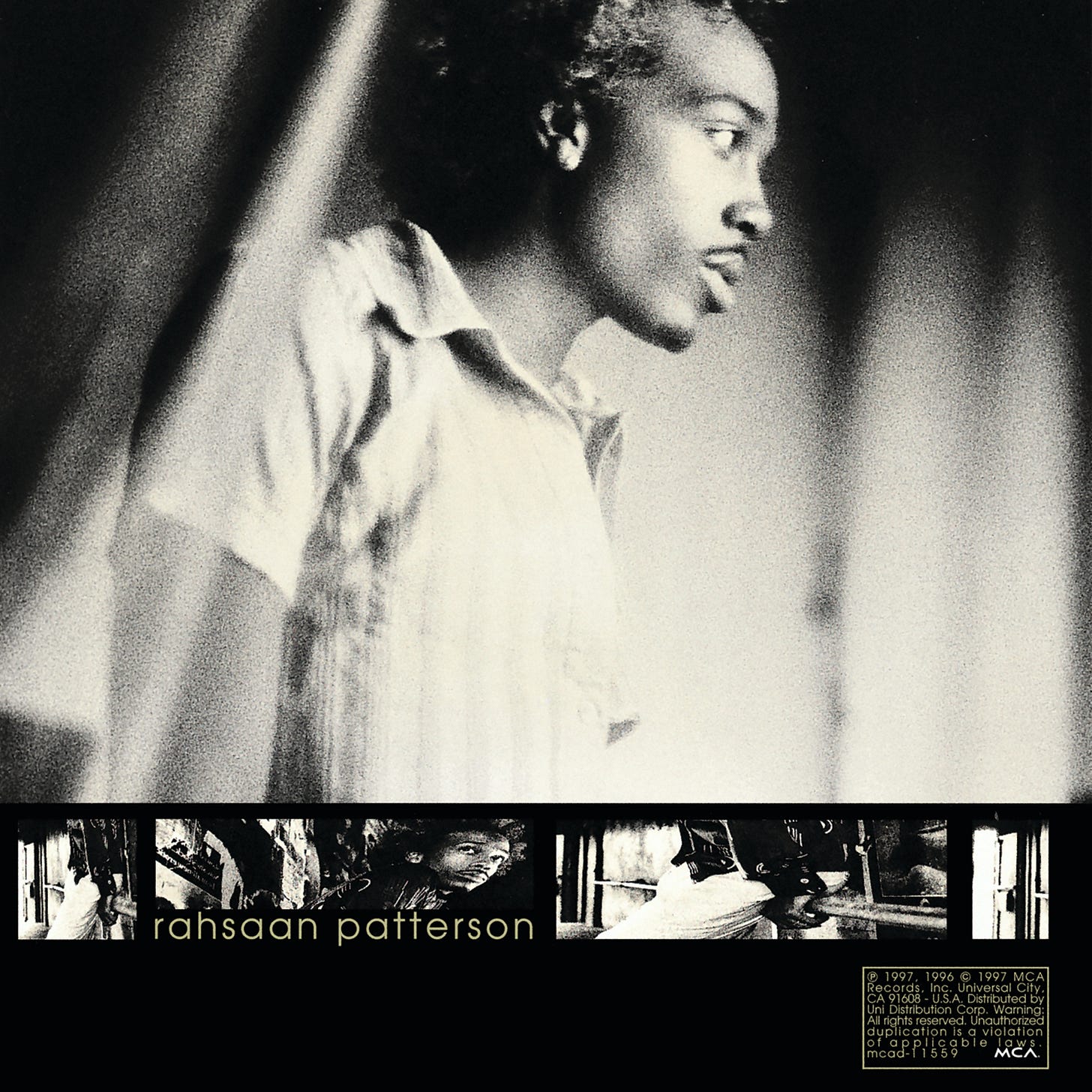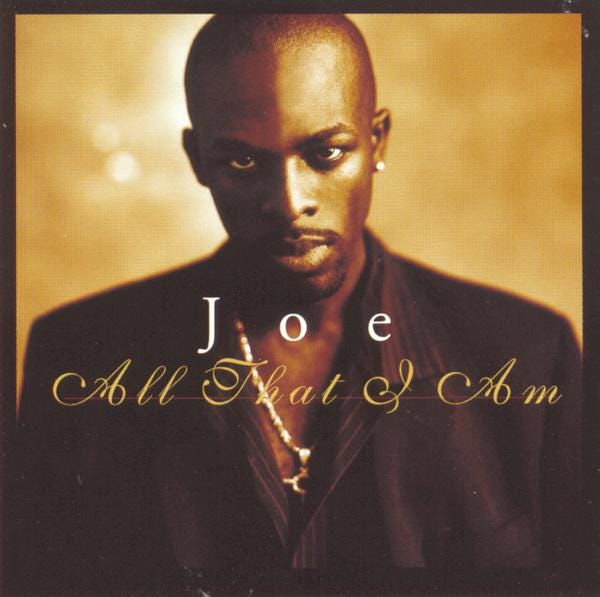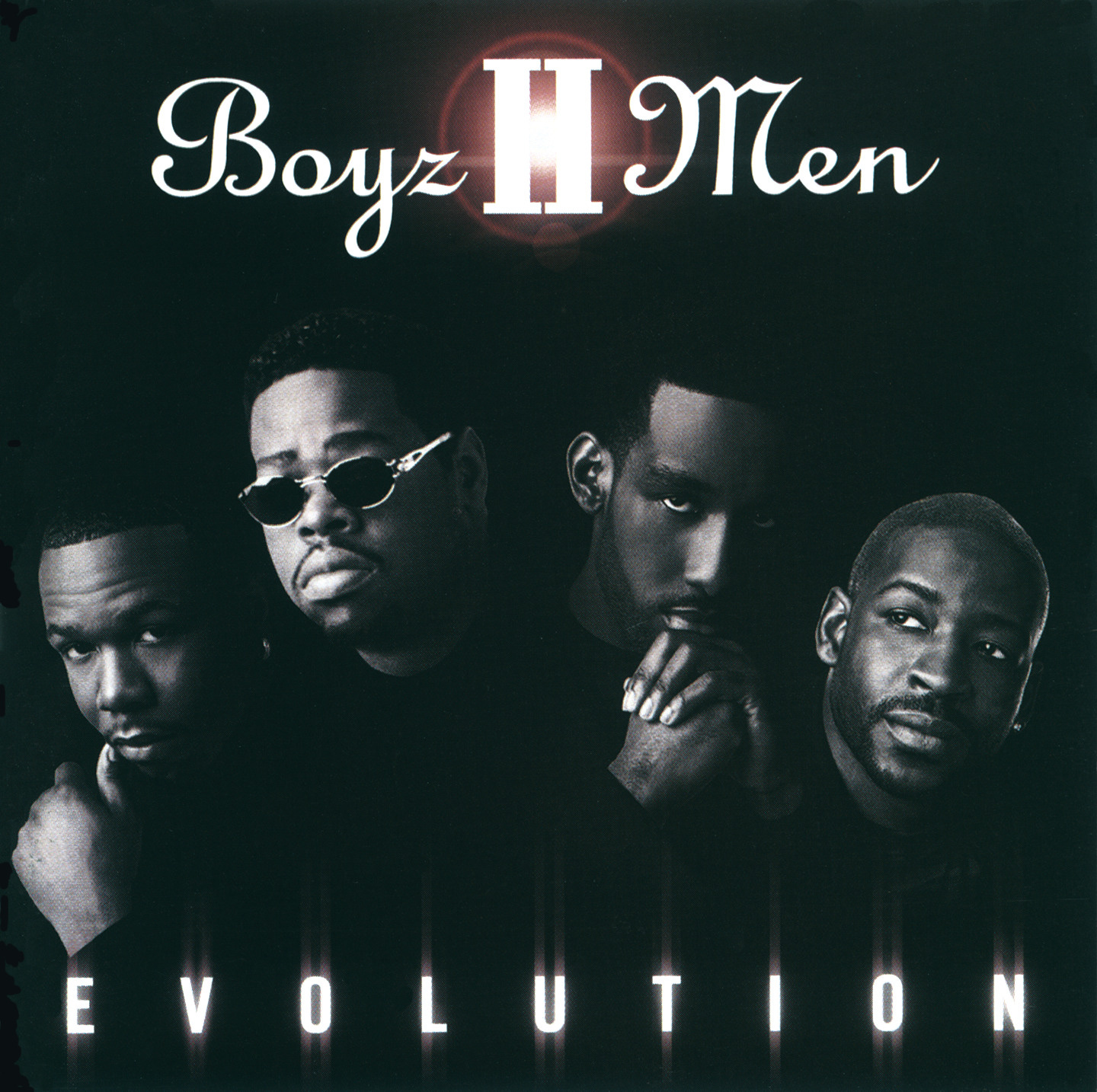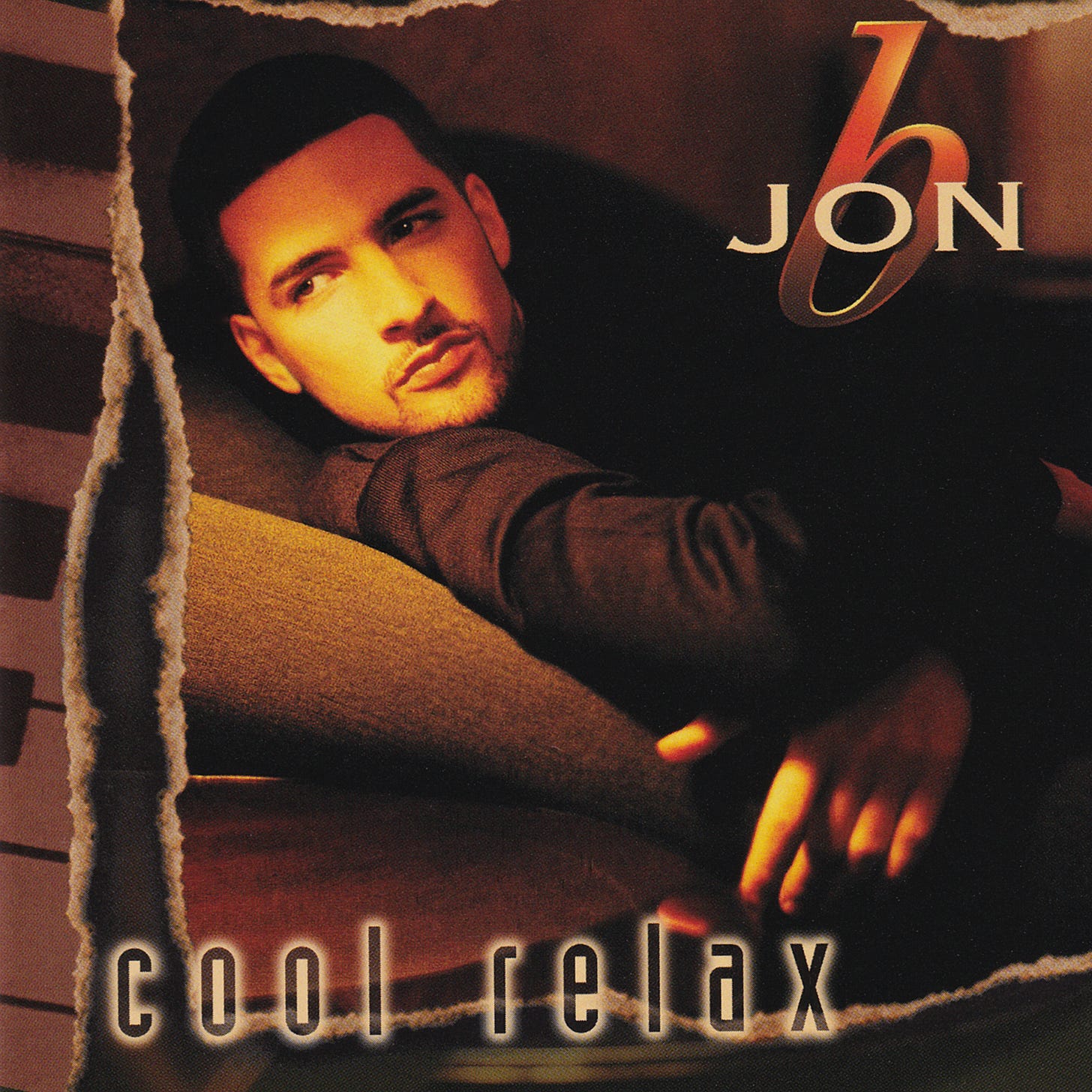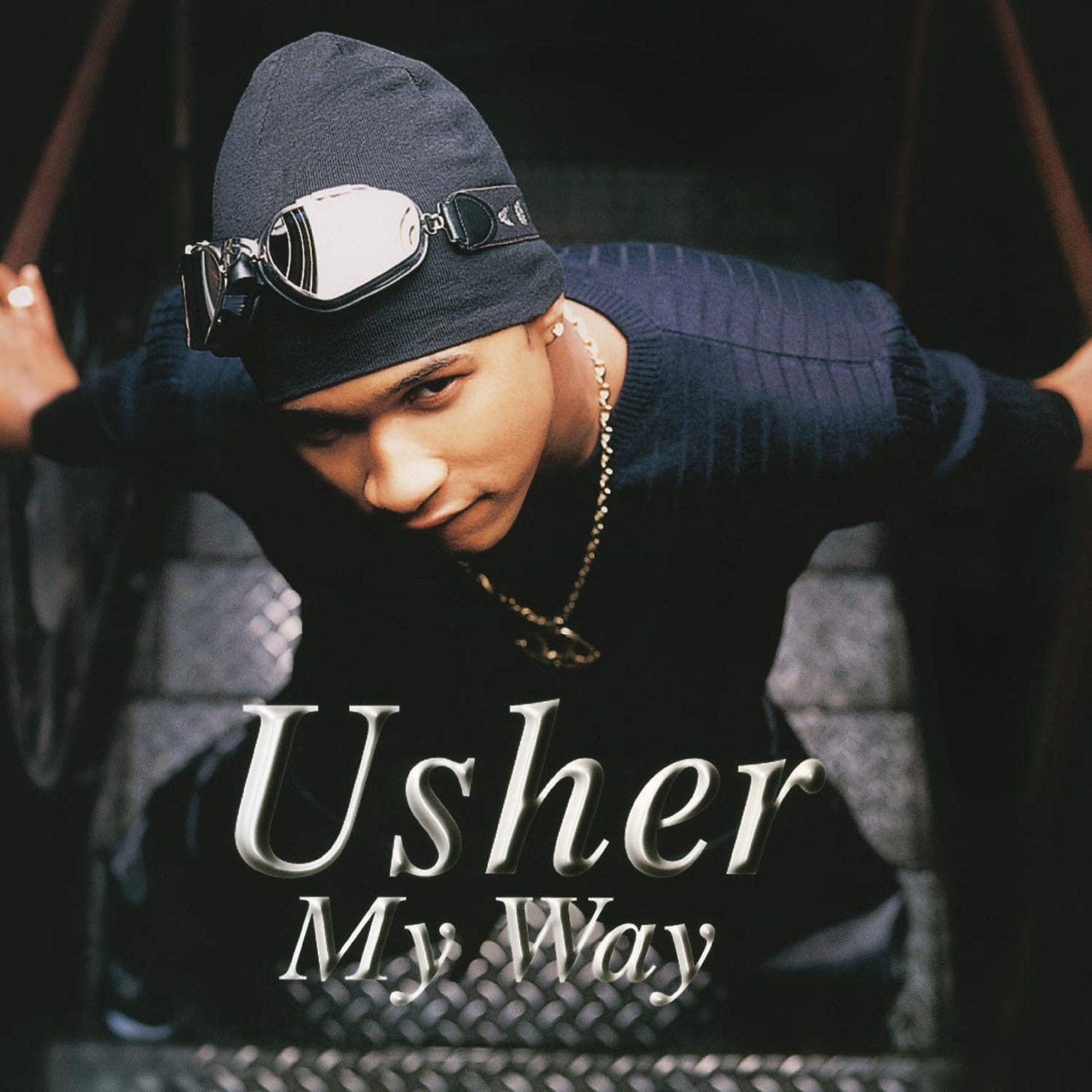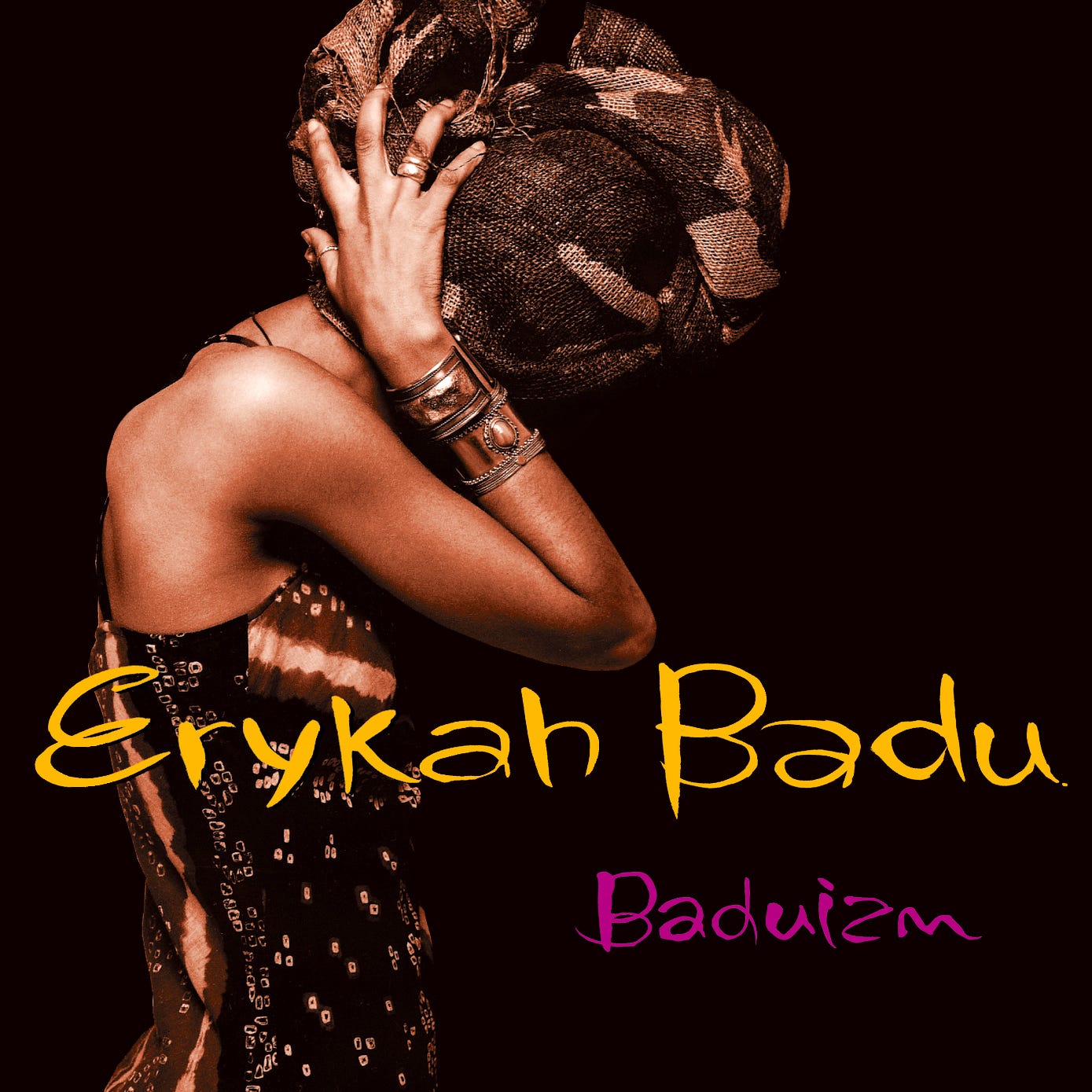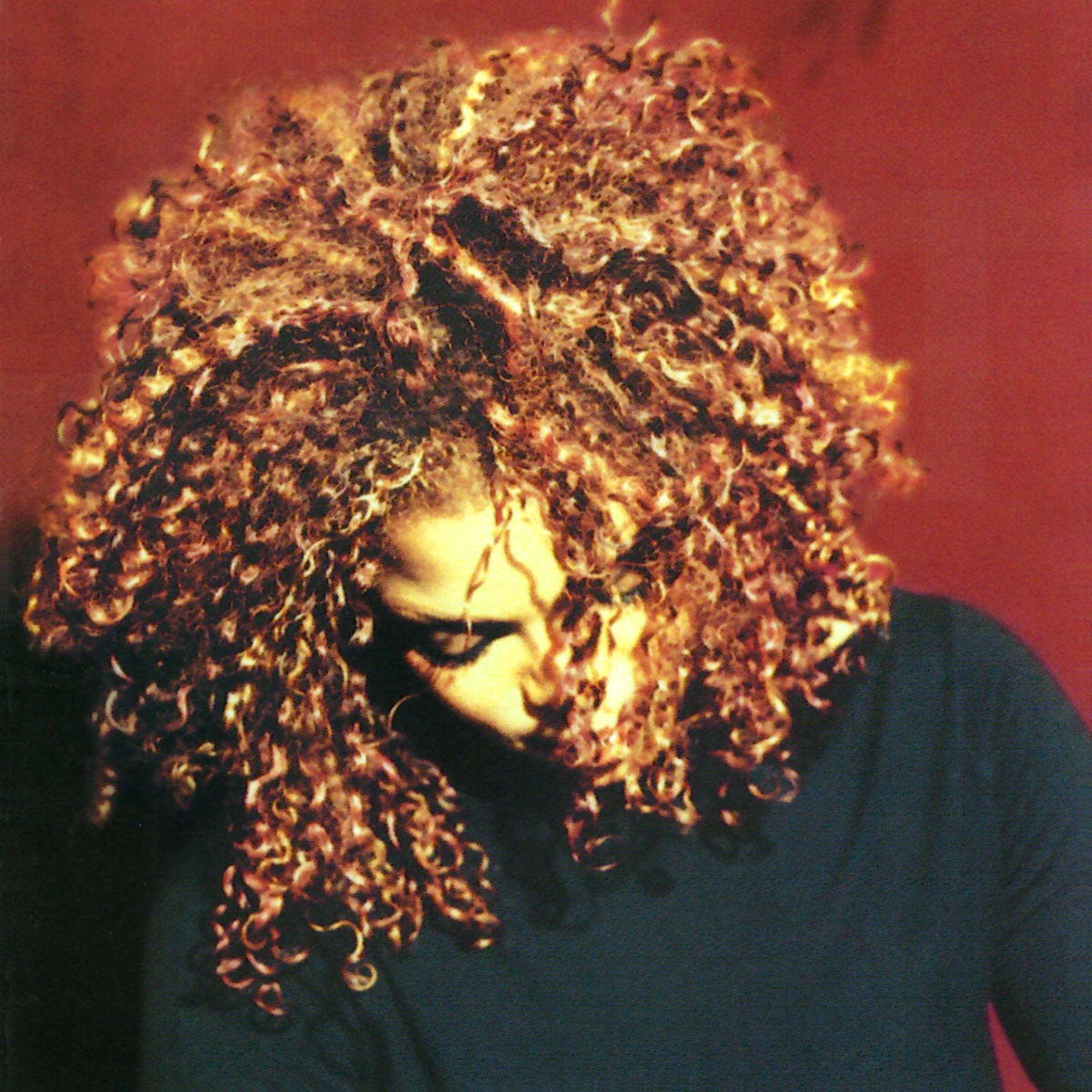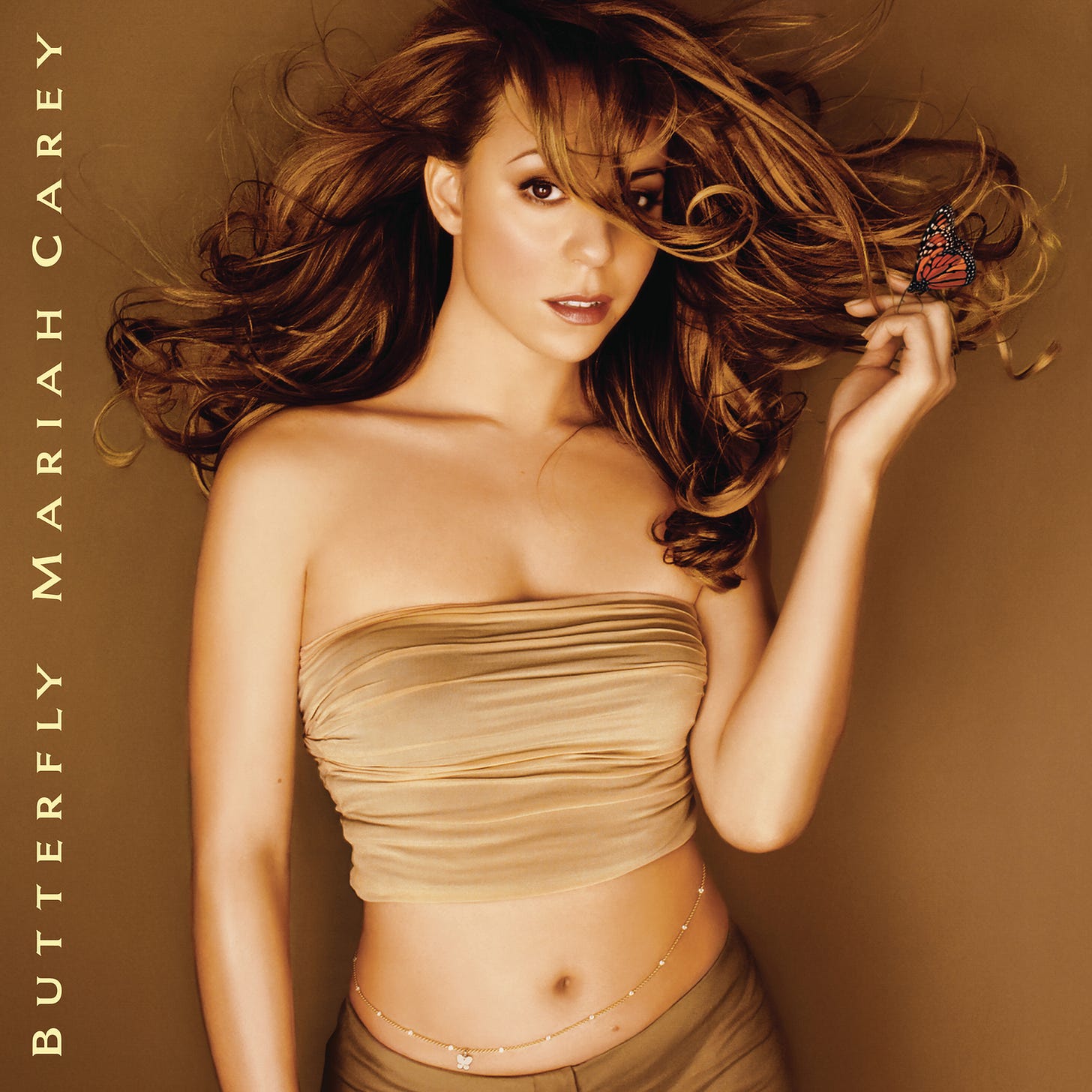The Best R&B Albums of 1997
We ranked twenty-five best R&B albums of 1997. It's perfect, argue with your family member.
Frankie — My Heart Belongs to You
Frankie, a native of Washington, D.C., met Chucky Thompson, a producer for Bad Boy Records who has worked with artists like the Notorious B.I.G., Mary J. Blige, Faith Evans, Total, and Usher. Frankie would be the first musician signed to Thompson's Chucklife subsidiary label on Epic Records, and the producer planned to use him to extend his rule over the genre. With the success of Boyz II Men, Usher, Mariah Carey, and SWV on the main roster and the emergence of the neo-soul movement led by liberators like D'Angelo, Erykah Badu, and Maxwell, My Heart Belongs to You emerged at a pivotal moment in the history of urban music. Frankie, the newest name in R&B, catered to both camps by fusing hip-hop soul with a more traditional sound that evoked Marvin Gaye. The album served as a rallying cry, with Thompson producing all tracks and contributions from some of the best in hip-hop soul, including Mary J. and Faith Evans (who sings a duet with the crooner on Think of You, written by 112). In his first song, If I Had You, the singer's silky vocals captivate over a sample of Isaac Hayes’s The Look of Love. — Reginald Marcel
Zhané — Saturday Night
This 1997 follow-up from Zhané was not as commercially strong as their first, which is a pity considering it is among the best R&B albums of its era. This album is a prime example of the New Jersey duo's signature style, which lies between hip-hop soul and classic soul. Superb singing, excellent lyrics, and stunning production, thanks to KayGee. — Brandon O’Sullivan
Chico DeBarge — Long Time No See
Everyone was caught off guard by Chico DeBarge's return. Chico, the youngest member of his notable musical family, was imprisoned for drug trafficking in the late 1980s and most of the 1990s. After moving back to a very different music landscape, DeBarge rebranded himself as a singer-songwriter in the vein of D'Angelo, all owing to Kedar Massenburg's neo-soul-focused label. The album he released after losing a decade of his life is a smokey collection of seductively gritty beats sung with enough charm and conviction to make listeners wonder what he might have become. — Harry Percy Brown
H-Town — Ladies Edition: Woman’s World
After hitting it big with Knockin' Da Boots and Part-Time Lover, one of which was produced by Devante Swing, in 1993, H-Town's success began to wane with the release of 1994's Beggin' After Dark. The late Keven "Dino" Conner wanted to make an album that spoke to women instead of merely making sexual advances, so he switched record labels (from Luke to Relativity) and recorded this tranquil tempest of a collection of songs. H-Town has grown up sonically, and it shows; there are moments of weird brilliance reminiscent of Jodeci here and hints of up-and-coming artists like Jaheim. Ladies Edition: Woman's World, the band's last project before Dino's sad death, merits a listen and a reevaluation. — Jamila Wamuiru
Adriana Evans — Adriana Evans
This singer-songwriter from San Francisco proved on her first album that she could compose songs with both modern appeal and timeless appeal. Evans is an expressive, sincere singer (she is the daughter of Mary Stallings, after all), and the production (handled primarily by Evans, her songwriting partner Dred Scott, and Rastine Calhoun) is beautifully tasteful, making the music here as timeless as its influences and as modern as the best stuff of the era. It's a shame that she waited seven years to publish a sequel after such a promising start. — Imani Raven
K-Ci & JoJo — Love Always
As members of Jodeci, brothers K-Ci and JoJo Hailey rose to prominence as R&B stars in the '90s, and they've now come together as a dynamic pair on their album Love Always. Fans of Jodeci will be disappointed to hear that their new CD doesn't have any of the group's signature new jack swing or the racy, insinuating lyrics for which they had become renowned. This album is an unassuming compilation of ballads and slow jams that isn't mind-blowing but is clearly above average, and it's evident that the great soul music of the 1970s had a significant influence on K-Ci & JoJo. — LeMarcus Dontrell
Allure — Allure
The fact that Mariah Carey's high-profile vanity label, Crave, debuted with Allure's self-titled debut is both a benefit and a curse. Although Carey's influence helped Allure get high-profile guests like Nas, LL Cool J, Q-Tip, and even Carey herself, the album has been subjected to the intense scrutiny that isn't fair to any emerging singing group. On their first album, Allure shows that they have skill by singing with conviction and style. While the album's uneven content is a detriment, the group's ability to make each song their own is impressive and helps make Allure a promising debut. — Reginald Marcel
Changing Faces — All Day, All Night
All Day, All Night is Changing Faces' second studio album, and it continues the group's exploration of the same musical ground as their first. The content is all over the place, but the band pulls it together with sleek production and powerful voices, making even the weak passages bearable and the finest tracks rather appealing. — Jamila Wamuiru
Jagged Edge — A Jagged Era
Jagged Edge's debut album features strong performances from the group, especially on the radio-friendly songs The Way That You Talk and I Gotta Be, which were expertly produced by Jermaine Dupri and featured the group's improved harmonies and smoother overall presentation. A Jagged Era has a few duds, but the quartet delivers an engaging sound. — Philemon Hayes
Yvette Michele — My Dream
Yvette Michele’s first album, My Dream, represents modern R&B with a hip-hop flavor. Michele, like Mary J. Blige, places more emphasis on edgier hip-hop beats than typical diva artists, and her voice is fantastic. As unfortunate as it is, she only sometimes has excellent material to work with. My Dream's strongest tracks show, however, that she has the potential to become a significant force in the industry with the appropriate song selection. — Ameenah Laquita
Next — Rated Next
To sum it up, Next's first full-length, Rated Next, is a fantastic set of modern urban soul heavily inspired by hip hop. While the group's sound may sometimes be too "risqué" for certain listeners' tastes, R.L., the main vocalist, is so smooth and captivating that he can even win over detractors. He might win over even more listeners with more uniform content, but as it is, half the album proves that Next is not a one-hit-wonder. — Jamila Wamuiru
Sam Salter — It’s On Tonight
I still need to understand how this album went unnoticed back in 1997. Sam Salter's music has depth and emotion that can't be denied, and any real lover of R&B would benefit from adding this to their collection. Sam provides uninterrupted quality work throughout. You could press play, again and again, to listen to the same song over and over again instead of moving on to the next option. What other record can boast such a statement? Although I had this CD when it first came out, I recently listened to it again to relive fond memories. The songs are just as relevant, honest, and personal as they were a decade ago. Who knows what happened to Sam's music career, but he deserved better. God rest his soul. — Murffey Zavier
Christión — Ghetto Cyrano
Christión's first album Ghetto Cyrano has a few rough moments. Still, the duo's sensual, seductive harmonies save the day for this standard urban R&B. Their song choices aren't always spot-on, but highlights like Full of Smoke, the album's lead single, help to make Ghetto Cyrano a promising debut. — Oliver Ivan Martin
SWV — Release Some Tension
SWV's third album is an effort to move away from their previous, more polished urban sound and return to their hip-hop beginnings. To do this, the group enlisted the help of a dizzying assortment of producers and collaborators, including Sean "Puffy" Combs (who both produced and rapped on the album) as well as Snoop Dogg, Missy Elliott, Foxy Brown, Lil' Kim, Lil' Caesar, E-40, and Redman. As may be expected, with so many A-listers in the mix, SWV was sometimes overshadowed on Release Some Tension, but this does not detract from the overall quality of the album. — LeMarcus Dontrell
Rome — Rome
Rome's self-titled debut is a slick, modern R&B album that doesn't attempt anything groundbreaking but has much heart. This artist from Michigan has been significantly influenced by his heroes, Marvin Gaye and Sam Cooke. The album is dominated by slow songs highlighting Rome's powerful, gospel-influenced vocals, such as I Belong to You and Crazy Love. Rome, like many R&B artists, prefers an improvised, freestyle approach to singing rather than singing to a fixed melody. He puts down a groove and then jams on top of it, demonstrating his impressive skill. Rome sings odes to love with an almost unrestrained sensuality, and the songs are all about love, plain and simple. Even a cover of the 1970s hit. That's the Way I Feel About Cha by Bobby Womack is handled well by him. No musical risks are taken on this record, but if you're looking for that “quiet storm" sound, a visit to Rome may do the trick. — Jamila Wamuiru
LSG — Levert.Sweat.Gill
Three singers who have lasted the longest in R&B are Gerald LeVert, Keith Sweat, and Johnny Gill. They topped the charts, but their success was not enough to make them household names. They never fizzled out and remained popular for a long time, quietly amassing success after being hit under the radar. In a nutshell, they're seasoned R&B pros who never fail to deliver. These guys know how to choose a good song and deliver it memorably, and that's why their first album as the supergroup LSG (ironically titled Levert.Sweat.Gill) is so engaging. Despite a few duds, the album is so wonderfully put together that it's hard not to appreciate it. Sometimes, when the melody is good and the production is complete, LSG's vocals mix in exciting harmony, resulting in smooth R&B with genuine emotional impact. Although the music was created with the help of veteran producers like Sean "Puffy" Combs and Jermaine Dupri, it has a fresh sound while remaining true to its R&B origins. That's why the first album by LSG is so successful. — Nehemiah Dawson, Jr.
Rahsaan Patterson — Rahsaan Patterson
Rising star Rahsaan Patterson, whose early work was heavily inspired by Stevie Wonder's albums from the '70s, released his first album under his self-titled LP in 1997. While the R&B singer/composer takes inspiration from Stevie Wonder on slower and medium-tempo tracks like Tears Ago, Spend the Night, and My Sweetheart, he never seems like he's trying to imitate Wonder and instead sounds determined to carve out his own unique identity. When many of his peers in the contemporary urban industry were heavily into gimmickry, Patterson kept things honest and plain on this album. That could be more spectacular but is emotional and rewarding, so he can't be accused of putting style before content. — Brandon O’Sullivan
Joe — All That I Am
All That I Am, Joe's second studio album, is a fun mix of current soul and dance-pop with a hip-hop influence. Joe has the potential to make this song compelling or, at the very least entertaining. There are a few dull moments on the album, but All That I Am is a top-notch urban soul when it's on. — Philemon Hayes
Boyz II Men — Evolution
Boyz II Men were hoping for a hat trick with 1997's Evolution after the massive success of their first two albums, 1991's Cooleyhighharmony and 1994's II. With composers and producers like Babyface, Jimmy Jam, and Terry Lewis on board, they had everything they needed to create another smash album. Even with its impressive cast, Evolution couldn't top the box office success of its predecessors. Understand me; Shawn Stockman, Nathan Morris, Wanya Morris, and Michael McCary's vocals on Evolution are just as great as they've always been. Rich and impressive harmony. Harmonious use of instruments. Boyz II Men have improved their songwriting, which is excellent news. These sentiments are an enormous improvement over the overt sexual overtones of their last album, but they're still not flawless. — Murffey Zavier
Jon B. — Cool Relax
Urban soul artist Jon B. progresses with his second album, Cool Relax. He often successfully created a rhythmic, swinging, and sexually alluring hybrid of traditional soul music and hip-hop from the 1990s. As a result, the feature alone makes Cool Relax pleasurable on a superficial level. The songs are most captivating, passionate, and refreshingly contemporary when the music, production, and tunes all come together. There are upbeat dance tracks on Cool Relax and Jon B's signature reflective love ballads. Jon B has sung his heart out on every note on this album, and it is easily one of the finest things about it. Those rare occurrences make up for the rough patches. — Reginald Marcel
Usher — My Way
While Usher's self-titled debut established his talent, it was his second album, My Way, that he excelled at. What sets Usher apart from other urban lovers is that he doesn't oversing and delivers his songs with genuine emotion. My Way has more good songs than many modern R&B albums from the late '80s, but he still has the same problem with inconsistent content as the rest of his contemporaries. Jermaine Dupri and Babyface both give excellent tunes and polished productions; You Make Me Wanna…, and Bedtime is two of the greatest ballads on the album. Even though it's good to hear a hip-hop/urban R&B album with a manageable length, the album could have used a better tenth track than an expanded version of the first track. However, it’s an excellent effort to show off Usher’s talents for a follow-up. — Ameenah Laquita
Mary J. Blige — Share My World
Mary J. Blige's early acclaim was wholly warranted. Since her first album, 1992's What's the 411?, dubbed as 'Hip-Hop Soul,' she was hailed as "the next Chaka Khan," which was an exaggeration. In any case, Blige did show potential, and by the time she released her third album, Share My World, she had matured into a believable soul/urban vocalist. Share, her most robust and most assured attempt to that moment, had significantly more character, individuality, and honesty than most of the assembly line garbage that dominated urban radio in 1997. Despite being very sophisticated, the production of artists like the prince of darkness, R. Kelly (with whom she performs a duet on the enticing It's On), Babyface, Jimmy Jam, and Terry Lewis doesn't seem artificial or mechanical. With the release of Share My World, Blige made her debut. — Philemon Hayes
Erykah Badu — Baduizm
Erykah Badu's debut album did the same thing that D'Angelo's Brown Sugar did in 1995—it introduced the genuine sound and emotional fervor of R&B to the genre. However, whereas D'Angelo harkened back to the apex of smooth '70s soul, Badu channeled the roughness and bluesiness of her idols, Nina Simone and Billie Holiday, in her music. She had a beautiful, lyrical voice that borrowed nothing from R&B of the preceding three decades, and she often sang out of time with the rhythm and took musical risks. Badu had an entrancing voice and hoarded her notes like the finest jazz singers, but she often made the same decisions, the characteristic of a singer based on soul, not jazz. She is more like Diana Ross's portrayal of Billie Holiday in the 1972 film Lady Sings the Blues than Holiday herself, which is a similarity many fans would likely find offensive. — Harry Percy Brown
Janet Jackson — The Velvet Rope
The Velvet Rope is Janet Jackson's sixth studio album. Remember that it is measured in albums, with the same one today ignoring her releases due to poor sales and quality. But this one, issued in 1997, was nearly her last excellent album; it was created in a thoughtful manner that demonstrated the limitations of these feelings, as well as concerning sexuality and homosexuality, following a big emotional collapse that left her in pieces to improve. The album is a long trek to listen to (22 songs, not including interludes), yet it has an innovative blend of hip-hop, electronic music, and conventionally mainstream elements. It's a work that lives up to the praise it's received for tackling critical societal issues like homophobia, sexism, and the rise of "liquid relationships" made possible by the internet. Forever relevant, The Velvet Rope, like all of her albums from the '80s and '90s, paved the way for musicians to take more significant risks with their songwriting and record production. — Brandon O’Sullivan
Mariah Carey — Butterfly
Mariah Carey has significantly impacted music more than any other singer. Her musical prowess was groundbreaking, and her influence can be seen throughout modern popular music. Everything came together for her masterpiece Butterfly, and we received the top work from the top songwriter. It's unusual for an album to convey such genuine passion and detail. Aural ecstasy results from a masterful production and layers upon layers of voices. Her brilliance shines through on tracks like Breakdown, which features the rap flow of Bone Thugs-N-Harmony in some of the most heartbreaking and relatable lyrics ever, and The Roof, which features the most romantic and poetic song ever written over a Mobb Deep aggressive, dark, and dangerous beat (Shook Ones, Pt. II). Other highlights include Fourth of July, on which her vocals evoke the magic of a young summer love, and the Dru Hill-assisted Prince cover, The Beautiful Ones, which she successfully elevates. — Imani Raven


